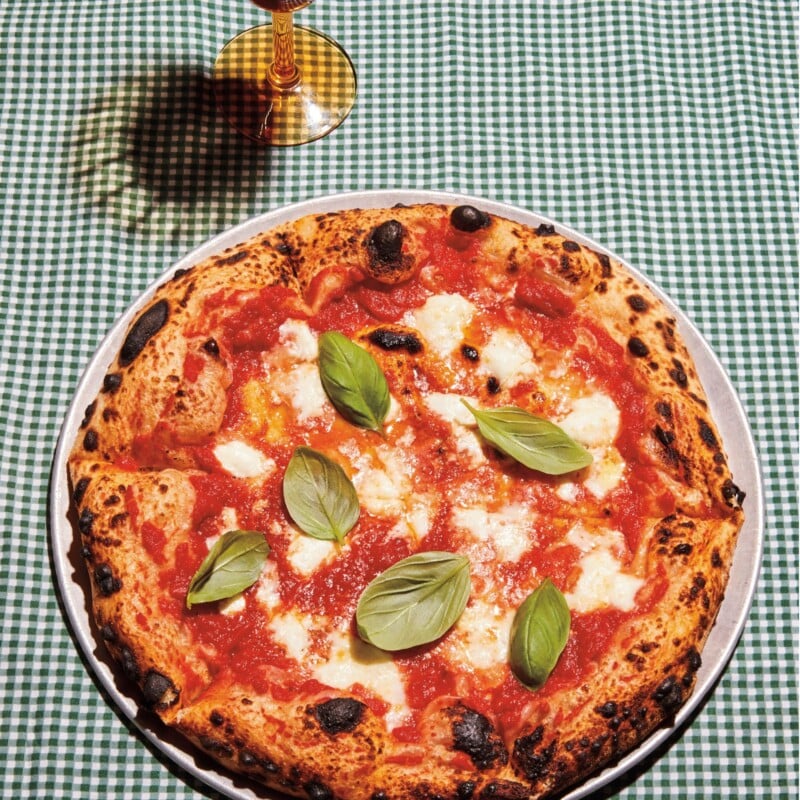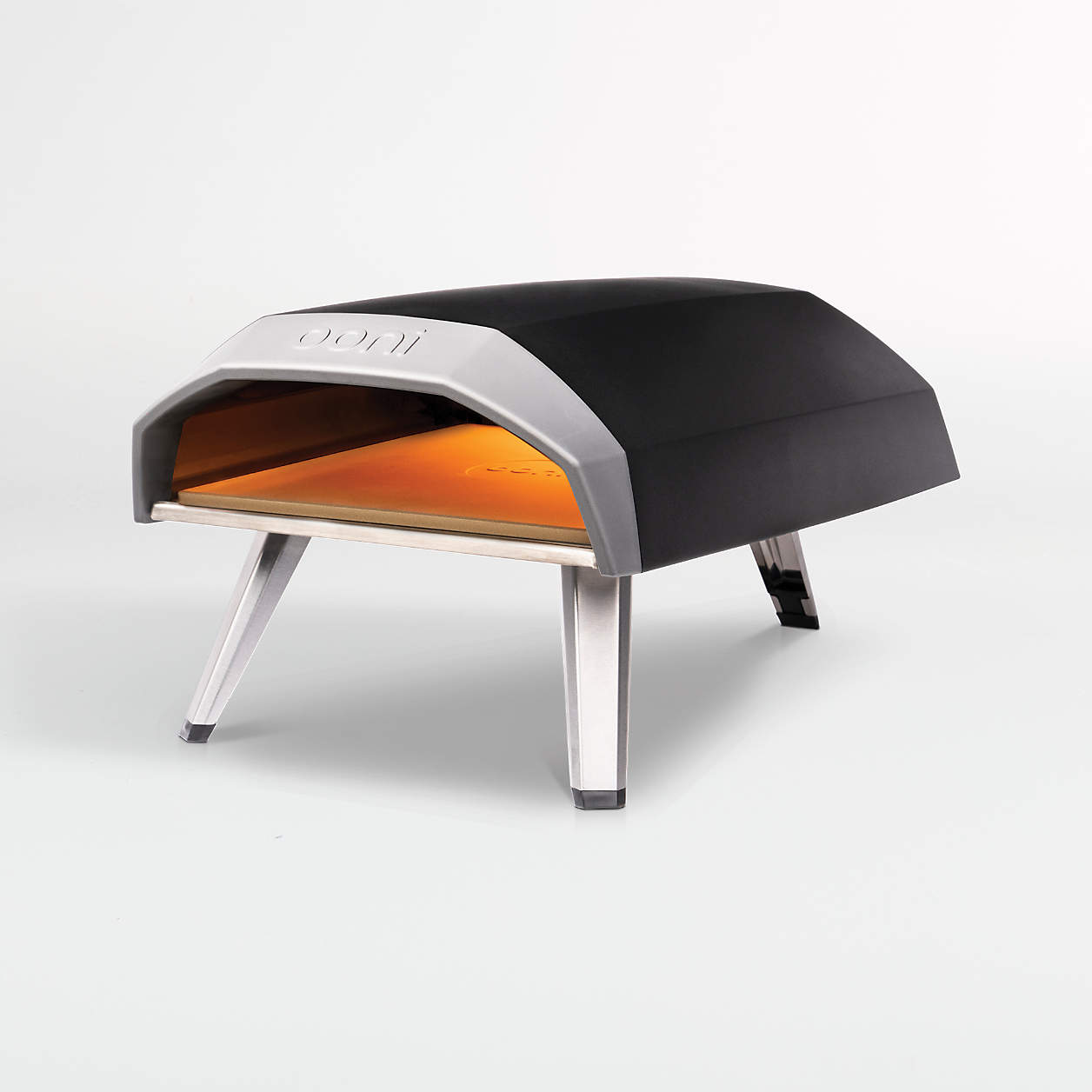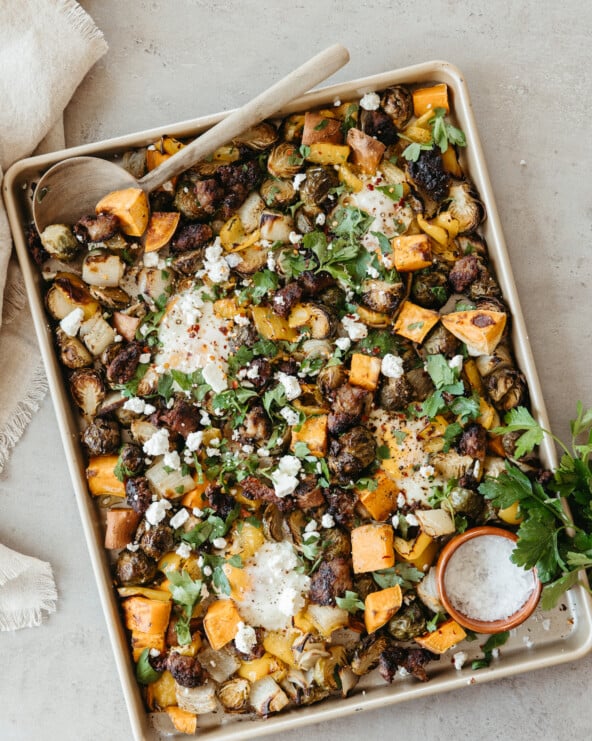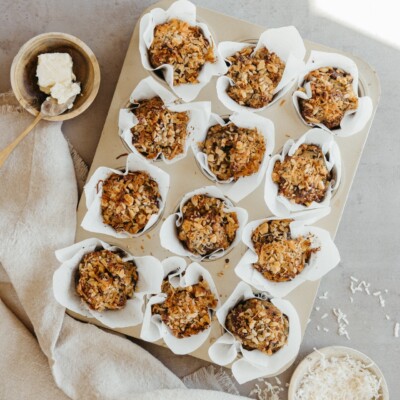If you know the Camille Styles team, you know: we’re pizza-obsessed. From sweet toppings (we love our peaches) to savory bites (pass the prosciutto pizza, please), there’s something for everyone when it comes to this widely-loved dish. And although I’ve made many pizzas myself, I’ve never been able to replicate the pies from my favorite neighborhood joint. But all that’s changed, because I have insider tips on how to craft the perfect pizza from Chef Janice Tiefenbach herself.
Montreal is one of my favorite cities, and every time I visit, I schedule out time in my itinerary for a meal at Janice’s restaurant, Elena. With her new cookbook, Salad Pizza Wine, Janice and the Elena team share their treasured collection of the restaurant’s well-loved dishes. Alongside pizza and pasta, the book highlights inventive salads, a mortadella sandwich that defines chef’s kiss, and desserts you’ll want to save room for.

Janice Tiefenbach Shares the Secret to Perfect Pizza
But beyond the recipes, Salad Pizza Wine provides a detailed but understandable approach to elevating your pizza at home. From choosing the best ingredients to tips on stretching your dough for a cracker-like crust, consider this your one-stop shop for perfecting your pizza. And today, you’re getting the behind-the-scenes scoop from Janice Tiefenbach herself. Keep reading to get all the details on making her stellar Neopolitan Margherita pizza at home.
“My preference is for a natural approach to cooking. Instinctive, with respect for traditions but a desire for freshness and a modern sensibility.”
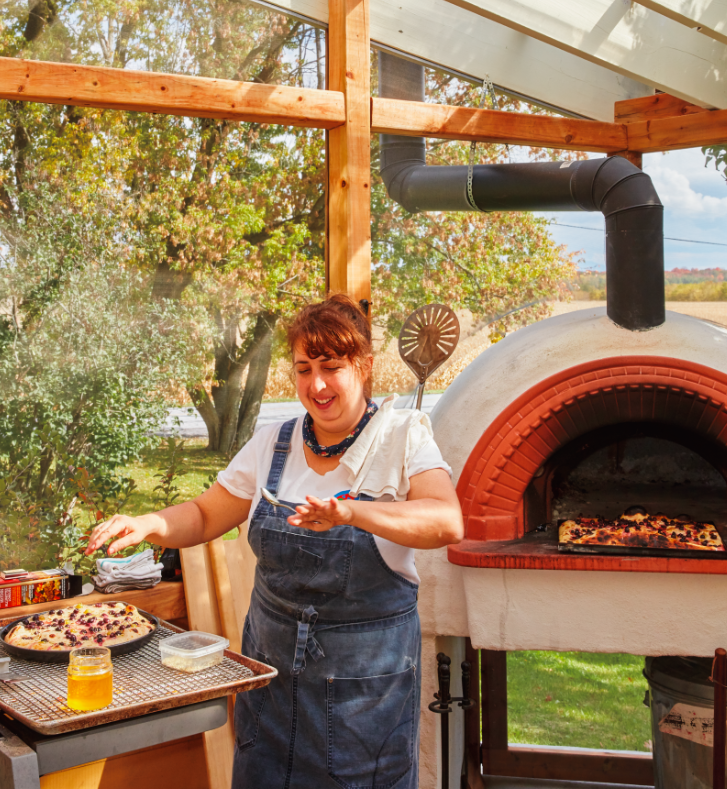
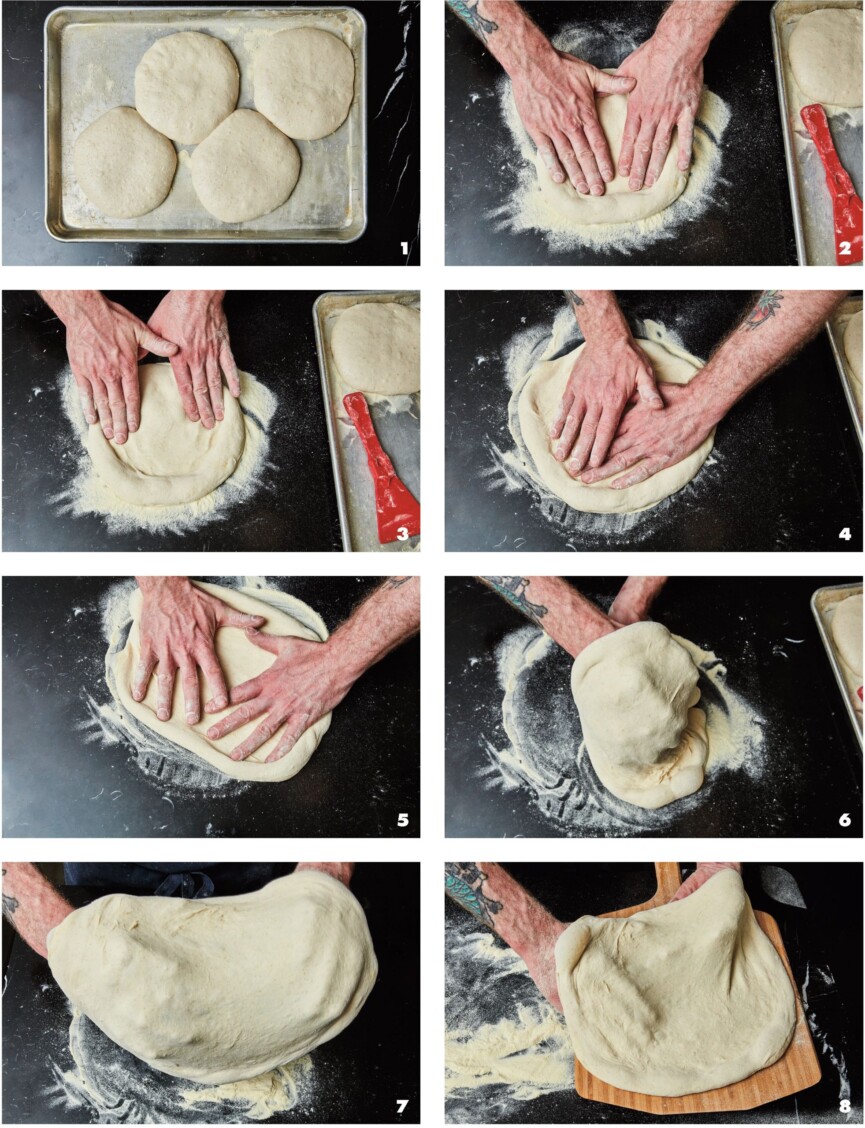
How would you describe your cooking and food philosophy? How has it influenced the menu at your restaurant, Elena?
My preference is for a natural approach to cooking. Instinctive, with respect for traditions but a desire for freshness and a modern sensibility. I try to follow a rule of simplicity and function. Every ingredient in a dish should be there for a reason, and to serve the purpose of allowing the featured ingredient to shine as much as possible. At Elena, we try to find a balance between respecting Italian culinary tradition but using the best ingredients we find closer to home.
What makes the Elena Margherita pizza special?
Our Margherita uses the best ingredients we could find as locally as possible. We use locally milled flour (not Italian imported), California organic tomatoes (Bianco di Napoli!), and Quebec Buffalo Mozzarella from an incredible local producer (Macioccia). The basil is from a local vegetable grower or our own garden and the olive oil is from our friends at Pacina.
Another thing that makes our pizza unique is the fact that it is 100% naturally leavened. Besides the integrity of all the other ingredients, the fact that it is a natural fermentation makes the dough a lot tastier and much easier to digest.
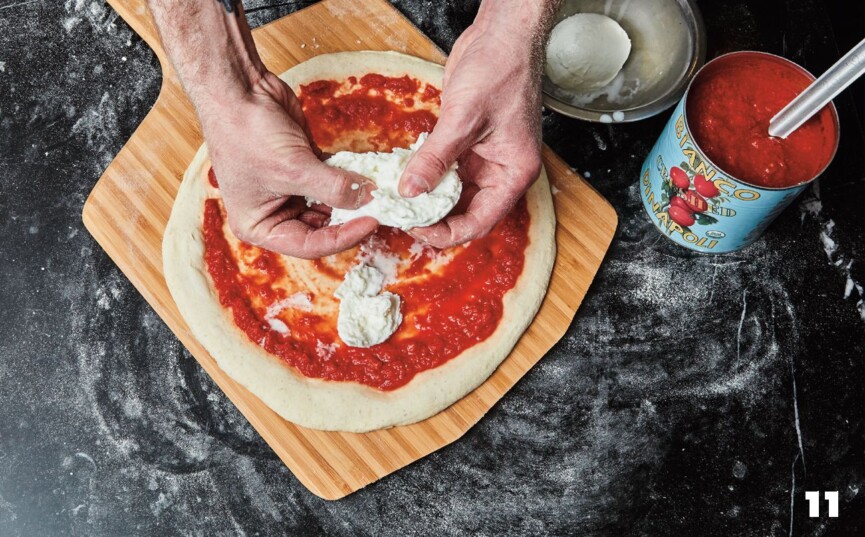
What makes this recipe your go-to?
Margherita pizza is a straight-up classic. For many people, I think it’s the platonic ideal of what a pizza should be. It satisfies in a very fundamental way. The combination of the tangy/sweet sauce, the creamy and salty cheese, and the range of textures in the dough from tender and moist to crispy and charred makes it completely irresistible. It’s one of those foods that when I eat it my brain kind of shuts down for a moment and I don’t need to think at all. I just enjoy every bite.
What kitchen tool do you recommend for making this pizza?
I highly recommend investing in a portable pizza oven. My preference is the ooni for its incredible design and relative affordability. If you love Neapolitan-style pizza, you will never regret buying one of these. It’s very easy to use and produces an outstanding pizza.
But if you aren’t ready to invest in an ooni and still want to try your hand at homemade Neapolitan pizza, I recommend investing in a pizza stone. It’s hard to replicate what we do at the restaurant in our wood oven in a conventional oven, so I often suggest starting with al taglio pizza. It lends itself much more to a home oven set-up.
A pizza peel is also pretty essential and is not expensive at all. One of the steps that often trips up beginner pizza makers is transferring the raw pizza to the oven. Learning how to use a pizza peel will change the game.
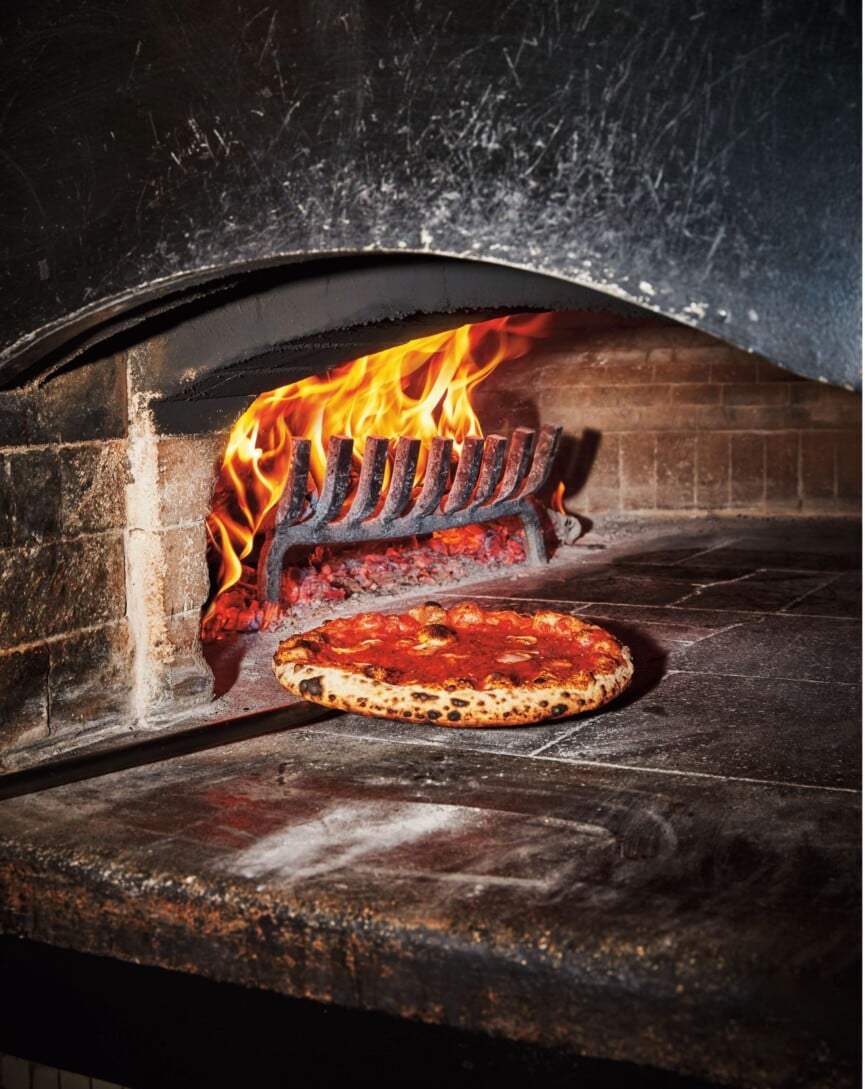
Margherita pizza calls for just a handful of ingredients. What makes this recipe special?
When it comes to pizza, less is absolutely more. A little restraint pays off and allows a few ingredients to interact in a more direct way with surprisingly effective results. Sauce, cheese, oil, and basil are nice on their own. But together, they resonate and become much more than the sum of their parts. Investing a little extra in good-quality tomatoes and cheese is worth it.
What tips and tricks can you share for making restaurant-quality pizza?
I suggest beginners double the dough recipe the first couple times you are making pizza. That way, you don’t have to stress so much if you mess up. The real secret to making good pizza is practice. Professional pizza makers have spent literally thousands of hours learning how to perfect tiny movements when handling the dough. But basically it’s just a pile of dough with some sauce on top, so don’t be so intimidated!
A couple of things to keep in mind:
- Keep the dough covered until you are ready to use it. Exposure to the air creates a skin on the surface of the dough which is not desirable.
- Dust your surfaces, dough, and hands with a little flour. This makes it so the dough isn’t too sticky and is less likely to stick to the peel or the counter.
- Let the dough temper a bit before you try to work with it. Cold dough is more likely to tear. The more relaxed and warm the dough is the looser it becomes. After that, you don’t really have to do much to stretch it out.
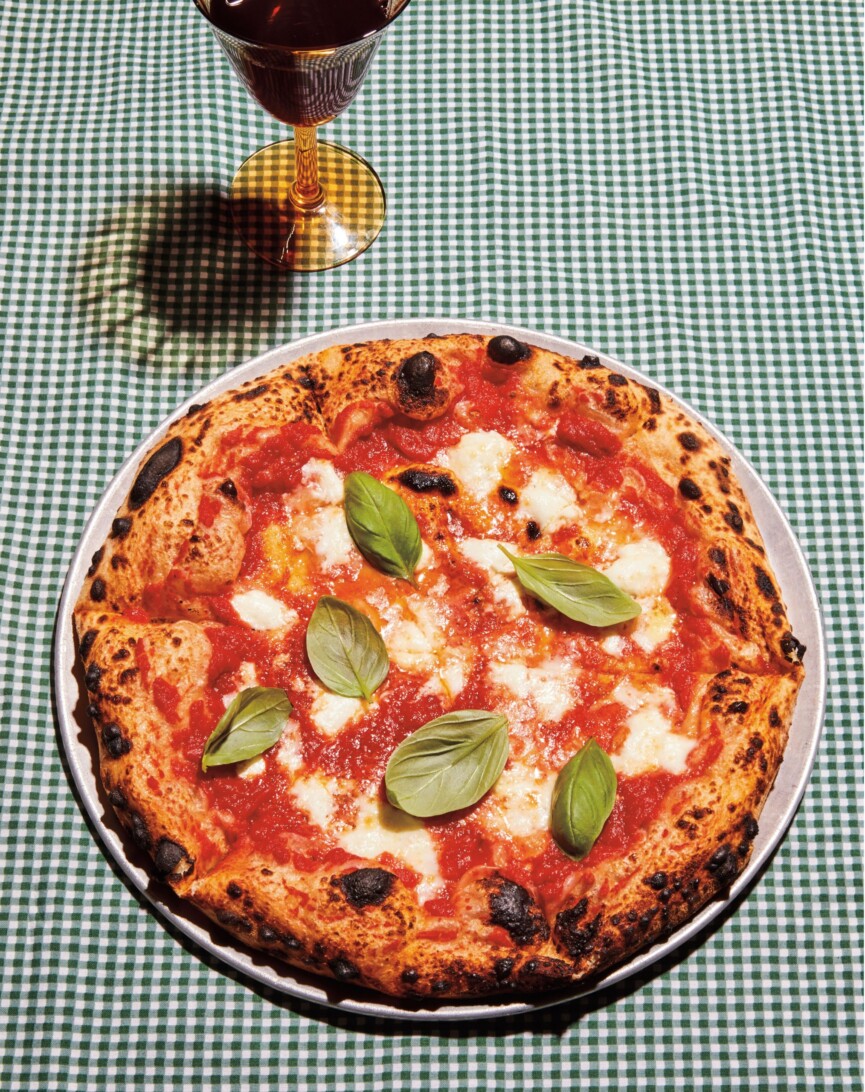
What advice would you give to someone who might be intimidated by making pizza at home?
- Double the batch so you have some to mess around with. That takes a lot of the stress away.
- Start with the al taglio dough. It’s a much wetter dough that yields way better results in a home oven. Everyone like to start with a win!
- Don’t overload your pizza with ingredients. Too many toppings will weigh down the dough, leading to problems like holes in the dough or undercooked dough.
What do you hope people learn when they make your recipes?
I really love cooking for people and making people happy through food. My hope is that people get to share in a bit of what we do at Elena and it brings them the same joy and happiness at home. I hope people use this book as a guide and it helps to give them tools to cook the food that makes them happy.
Follow Elena, Janice, and Coffee Pizza Wine on Instagram and keep reading to get Janice Tiefenbach‘s recipe for this Margherita pizza.
Print
Neopolitan Margherita Pizza
- Total Time: 40 minutes
- Yield: 1 1x
Description
Margherita Pizza is the benchmark for good pizzas and this simple recipe sets you up for delicious homemade success.
Ingredients
- 1 ball of Neapolitan Pizza Dough
- 1/4 cup canned crushed tomatoes
- 1 ball (75g or about 1/2 cup) buffalo mozzarella
- 1 tablespoon extra virgin olive oil + more to finish
- 6–8 leaves of fresh basil
Instructions
- Stretch the dough and transfer onto a pizza peel.
- To bake in an oven, place a rack in the lower third of the oven and remove the rack above it. Slide a pizza stone on the rack and turn up your oven to 500 F. Let the stone preheat for at least 1 hour before baking your pizza. (If you don’t have a pizza stone, you can bake the pizza directly on an inverted baking sheet without preheating it.)
- Dollop the crushed tomatoes in the center of the pizza and, with the back of a spoon, gently spread the sauce in a circular outward motion, leaving 1 1/2 inches of uncovered dough around the edges for the crust. Be careful not to apply too much pressure to avoid damaging the dough.
- Break up the mozzarella with your hands and spread it evenly over the sauce. Drizzle the pizza with a tablespoon of olive oil.
- Take the peel and insert it into the oven at a slight angle until you can reach the back of the pizza stone. Give the peel a little shake to allow the pizza to start sliding off it—it should look like you are draping the pizza from the back of the stone to the front.
- Bake the pizza for 8-10 minutes, until the center has set and the crust has formed nice golden and blistered bubbles. Once you are satisfied with the bake of your pizza, use the peel to remove it from the oven and transfer it onto a cooling rack. Let it rest for 1 minute.
- Drizzle the pizza with more olive oil, transfer to a cutting board or pizza pan, cut and top with a few fresh basil leaves.
- Prep Time: 30
- Cook Time: 10
- Category: Pizza
Keywords: Margherita, Pizza
Excerpted from Salad Pizza Wine by Janice Tiefenbach, Stephanie Mercier Voyer, Ryan Gray and Marley Sniatowsky. Copyright 2023 Janice Tiefenbach, Stephanie Mercier Voyer, Ryan Gray and Marley Sniatowsky. Photographs by Dominque Lafond. Published by Appetite by Random House, a division of Penguin Random House Canada Limited. Reproduced by arrangement with the Publisher. All rights reserved.


